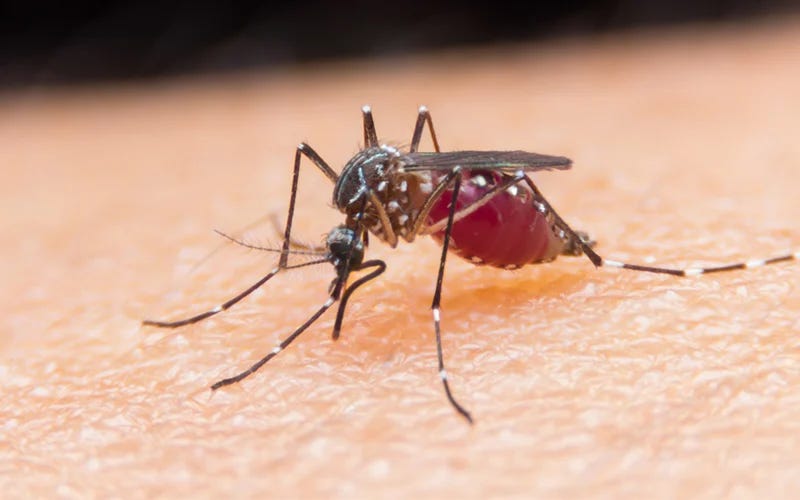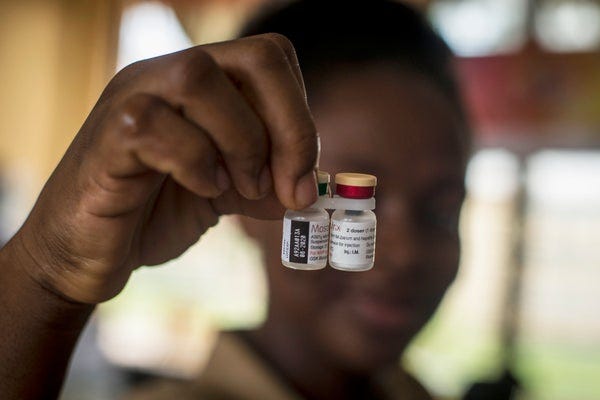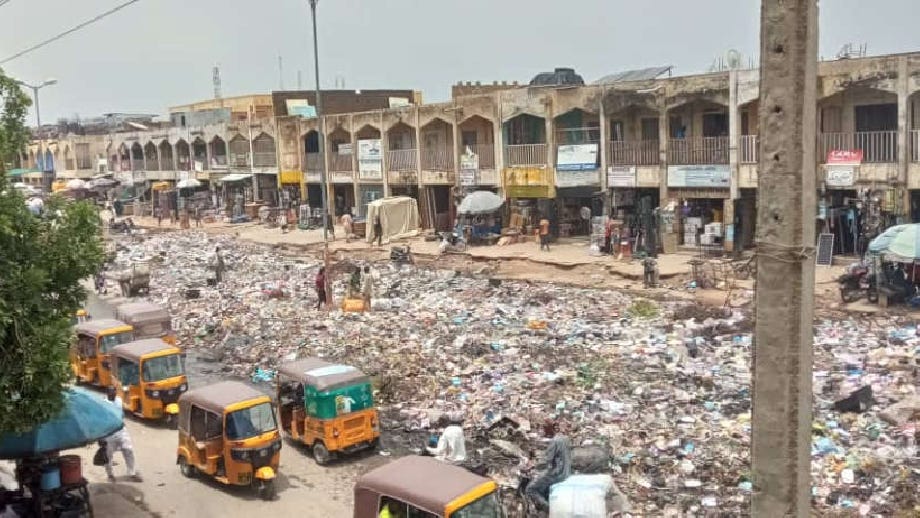If a vaccine is your hammer, all the world is a nail
On the eve of a possible 'pre-emptive' pardon for Anthony Fauci, we know Big Pharma's one-size-fits-all approach to disease — vaccinate the world, and demonize the skeptics.

In Kano, Nigeria, malaria is raging, as reported by Agence France-Presse. The news wire claims it’s all due to vaccine skepticism yet, if you read the story, you may find yourself in agreement with the locals refusing the malaria vaccine, Mosquirix. You may even start thinking the locals have more common sense than the bureaucrats pushing the jabs.
Let’s be clear about one thing: Malaria is a killer. It infects hundreds of millions of people each year, with Africa bearing the heaviest toll. Families lose children, parents, grandparents, and even livelihoods to this disease. So if a solution were found to the mosquito-borne disease, it would be more than welcome.
The catch, however, is that Mosquirix — the world’s first WHO-endorsed malaria vaccine — isn’t the miracle breakthrough they promised. With only “moderate efficacy” — preventing just 4 in 10 malaria cases — it’s at best a patchwork solution for the world’s poorest.
Worse still are the lingering questions about the vaccine’s durability and safety. And while the World Health Organization says “using this vaccine on top of existing tools to prevent malaria could save tens of thousands of young lives each year,” the organization’s credibility is seriously in question.
Accusations of using African children as guinea pigs in vaccine trials, cutting corners on informed consent, and skirting ethical standards have betrayed public trust once taken for granted. After COVID, skepticism about health institutions isn’t just an African phenomenon; it’s global. But especially in places like Kano, that skepticism is rooted in history and hard truths.
Doubts embedded in reality
Kano’s vaccine resistance isn’t born of ignorance — it’s grounded in experience. In 1996, during a severe meningitis outbreak, Pfizer conducted a clinical trial of an experimental antibiotic on approximately 200 children. Many died or had serious health issues. The Nigerian government later accused Pfizer of administering the drug without proper authorization or informed consent. The parties settled for $75 million.
Lubabatu Abubakar, a mother of six in Kano, says she refuses to vaccinate her children with Mosquirix. She told AFP: “I will not take the malaria vaccine, nor will I administer it to my child, because I’m not convinced it has no adverse effects.” She’s seen too many empty promises unravel into tragedy.
“I agree malaria is a huge health problem, but it can be contained if the government takes care of the mountains of refuse everywhere, which breed mosquitoes,” the 40-year-old said.
Then there’s Umar Shehu, another Kano resident who cuts straight to the heart of the matter: “We need to get rid of malaria, but hunger is a more pressing problem. How can a vaccine work on starving people?”
Nigeria’s economic struggles — fuel subsidies gone, inflation through the roof — make survival a daily battle. For many in Kano, the idea of prioritizing vaccines over food feels like a cruel joke.
The vaccine skeptics of Kano aren’t just pointing out flaws; they’re suggesting solutions. They know clearing refuse piles would help tremendously. They understand that reducing the cost of living would allow families to focus on health and nutrition. But these systemic fixes don’t grab headlines — or profits.
Instead, the focus of news reporting like AFP’s remains on Mosquirix.
The WHO’s troubling history

The WHO’s handling of Mosquirix, clearly described in a 2021 McGill University article, has done little to inspire confidence. Author Jonathan Jarry explains that during trials, alarming safety signals emerged — including higher rates of cerebral malaria, a doubling of deaths among vaccinated girls, and a tenfold increase in meningitis cases.
Instead of pausing to address these red flags, the WHO pushed ahead, rolling out pilot programs in Malawi, Ghana, and Kenya under ethically dubious circumstances. Families in these countries weren’t informed they were part of a research project. The WHO dismissed this ethical breach, calling it “routine vaccination” and claiming “implied consent.”
It’s a move reminiscent of the darkest chapters of medical history, where the vulnerable are treated as expendable. The post-WWII Nuremberg Trials were supposed to put an end to such atrocities, and yet the West finds itself in its own ‘Dr. Mengele’ moment, where profits take precedent over the sanctity of life. And it’s not just in Africa. COVID proved that even developed countries aren’t exempt from the diabolical machinations of the Pharma killing machine.
The next frontier of malaria control is a push for genetically modified parasites, which raises all manner of concerns. In one study, volunteers were bitten by mosquitoes carrying weakened malaria parasites. While the results were promising, it’s hard not to feel uneasy about the risks and unintended consequences — and about how easily informed consent could be brushed aside once again in the rush to innovate.
What’s really at stake?
This isn’t just about a vaccine or a mosquito. It’s about trust. Public health campaigns live and die by trust, and right now, that trust is all but fully eroded. People in Kano — and across the world, frankly — are asking hard questions: Why aren’t we tackling the root causes of disease? Why are ethical standards lower for poorer nations? And why are institutions that stand to profit in charge of decisions about our children’s health?
The answers, or lack thereof, are damning.
With the threat of a bird flu pandemic now being dangled like the Sword of Damocles, we should all be demanding answers. Fear is currency for global health institutions and by extension, governments. But trust? That’s a resource they’re all too happy to take for granted. If we’re not careful, it’s possible we’ll inadvertently repeat the mistakes of the past — and just as before, the price will be paid by those who can least afford it.




My wife and I got the Johnson & Johnson vaccine in April of 2021. It's now known as the "Clot Shot" and has been pulled from the market. With the endless flood of problems coming from Pfizer vaccines, we chose not to revaccinate. One of the guests at our Thanksgiving dinner had COVID, possibly picked up during air travel. He was tested before leaving home, and was negative, so he did not test again. This same guest had the original Pfizer vaccine, as well as every booster offered. The vaccines clearly do not work, and as the facts are finally coming to light, they are dangerous. Given that, I'm not exactly thrilled to discover the my prescription for this comes from Pfizer.
Easy money drives the vaccine industry, as they have immunity from prosecution. They took advantage of that since1986 and built a multi-billion dollar empire based on incomplete and inadequate science. They used their wealth to propagandize and bribe institutions and infiltrate various agencies. But now it's finally catching up to them as the population wakes up to the scam. Trust is gone, anger is rising. They crossed a line with covid,, surpassing all previous injuries, and coordinating the greatest loss of wealth and health world wide. Using money and influence and sophisticated propaganda they indoctrinated, coerced, terrified, and manipulated the majority. Lies upon lies, turtles all the way down, the house of cards is collapsing.